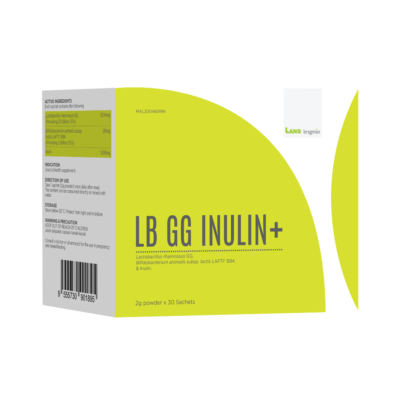This health article has been professionally reviewed by RPh Chong Kai Qian, a registered pharmacist of the Malaysian Pharmacists’ Society (MPS).
Gastritis, an inflammation of the stomach lining, could be caused by various factors such as:
- Bacterial infection (E.g: Helicobacter Pylori bacteria)
- Regular use of painkillers
- Aging
- Excessive alcohol intake
- Chronic stress
- Other diseases and conditions, such as auto-immune diseases.
In this article, let’s dive into how Helicobacter Pylori bacterial infection might be the culprit of your recurrent gastritis symptoms.
What is Helicobacter Pylori bacteria?
Helicobacter Pylori, or known as H. pylori, is a bacteria that infects the stomach lining and is able to thrive in the harsh environment of your stomach. Despite the acidic conditions, it manages to colonize and multiply, causing inflammation and irritation of the stomach issue, increasing the risk of gastric ulcer and even cancer [2]. However, many people with H. pylori infection have no symptoms at all.
The Connection Between Gastritis and H. Pylori
H.pylori is a primary cause of gastritis and peptic ulcer disease worldwide based on CDC Yellow Book 2024 [2]. When this bacteria invades and attaches onto the stomach lining, it triggers an immune response. The body’s defense system works overtime to fight off the infection, but in the process, it can damage the delicate stomach lining, leading to inflammation. This sustained inflammation might implicated in the development of peptic ulcers and gastric cancer.
According to the National Institute of Diabetes and Digestive and Kidney Diseases (NIDDK), H. Pylori infection is a common cause of gastritis and peptic ulcers [1]. Early detection and treatment are essential to prevent complications.
Symptoms of H.Pylori Infection

H.Pylori infection can vary from mild to severe. Some common symptoms of H.Pylori Infection include [3]:
- Unintentional weight loss
- Loss of appetite
- Stomach pain
- Acid reflux/heartburn
- Belching
- Nausea
Diagnosis and Treatment
If you suspect gastritis, it’s essential to consult a healthcare professional. They can perform tests to determine if H. pylori is the underlying cause. Common diagnostic methods of H.Pylori infection include [2]:
- Fecal antigen assay
- Urea breath test
- Serology blood test
- Histology of biopsy specimen via endoscopy
Treatment usually involves a combination of antibiotics to eradicate the H. pylori bacteria and medications to reduce stomach acid. To enhance treatment and support overall gut health, consider these complementary approaches:
- Probiotics: Beneficial bacteria can improve antibiotic-related side effects, enhance eradication rates, and restore gut balance. Strains like Lactobacillus reuteri are being explored as a potential adjunctive therapy [4]. Learn more about Probiotics versus H Pylori: How Beneficial Bacteria Can Support Your Gut Health
- Diet: A balanced diet rich in fruits, vegetables, and whole grains supports gut health. Consider limiting spicy foods, alcohol, and caffeine, which can irritate the stomach.
- Stress Management: Chronic stress can exacerbate stomach problems. Techniques like meditation, yoga, or deep breathing can help.
- Lifestyle Modifications: Regular exercise, adequate sleep, and avoiding smoking can contribute to overall well-being.
When to Seek Medical Attention
If your symptoms get worse or you have symptoms such as severe stomach pain, black stools, seek medical attention immediately. These could be signs of a more serious condition.
Remember, early detection and treatment are crucial for managing gastritis and H. pylori infection.
Disclaimer: This article is for informational purposes only and does not replace professional medical advice.
References
1. National Institute of Diabetes and Digestive and Kidney Diseases. (2019). Definition & Facts for Gastritis & Gastropathy . Retrieved from https://www.niddk.nih.gov/health-information/digestive-diseases/gastritis-gastropathy/definition-facts
2. Connor.B, 2023. Helicobacter pylori. CDC Yellow Book 2024. https://wwwnc.cdc.gov/travel/yellowbook/2024/infections-diseases/helicobacter-pylori
3. AskMayoExpert. Helicobacter pylori (H. pylori) infection. Mayo Clinic; 2022.
4. Milner, E., Stevens, B., An, M., Lam, V., Ainsworth, M., Dihle, P., Stearns, J., Dombrowski, A., Rego, D., & Segars, K. (2021). Utilizing Probiotics for the Prevention and Treatment of Gastrointestinal Diseases. Frontiers in microbiology, 12, 689958. https://doi.org/10.3389/fmicb.2021.68995









